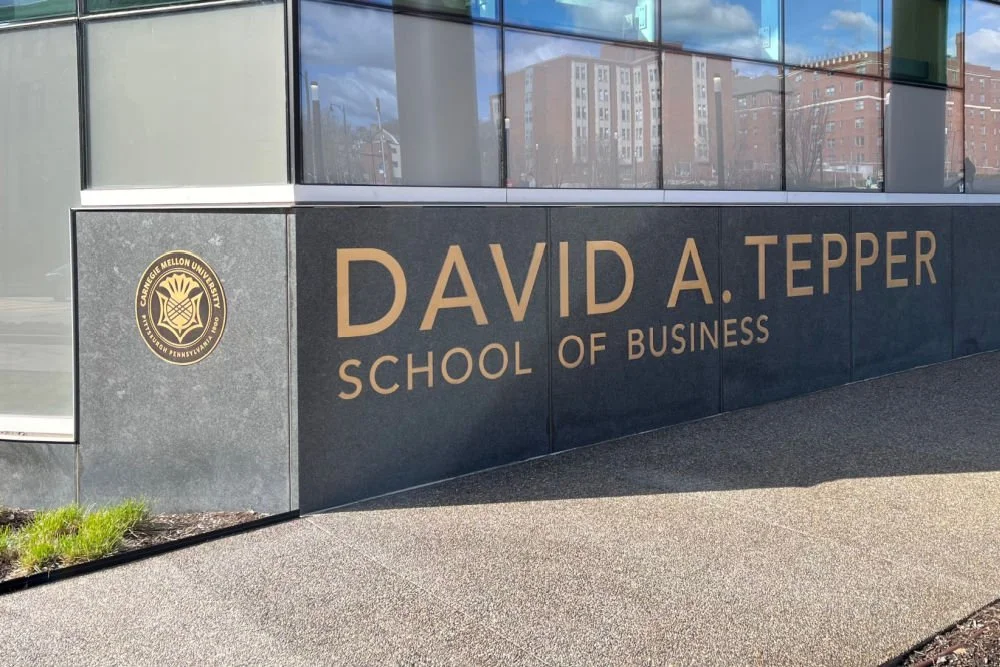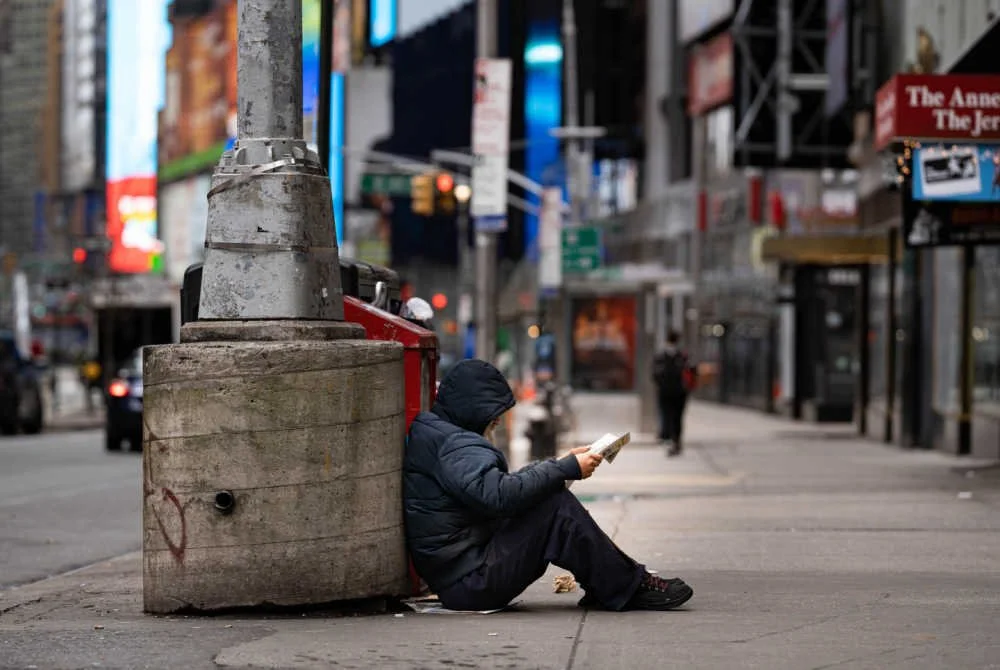From Adolescence through College: A Donor Keys in on Mental Health and More on Campus
/Have a nice day Photo/shutterstock
After traffic accidents, suicide is the second-leading cause of death for college students. Many are experiencing living away from home for the first time, as well as balancing the stressors of school work with a healthy social life. A recent study from the Developmental Risk and Cultural Resilience Program indicated that more than 20 percent of college students dealt with so much stress that they considered suicide.
Campus leaders are struggling to keep up with this mental health crisis. For example, according to the New York Times, in 2005-2006, Cornell Health Counseling and Psychological Services provided care for 13 percent of Cornell students. In 2016-2017, counselors touched 21 percent of that university’s student population—bolstered by 10 new full-time employees, for a current total of 32 counselors to provide the needed services for 14,500 undergraduates and 7,000 graduate students as of July 2018.
An Unusual Campus Gift
Mental health on campus is personal for Clifford Chiu, a UPenn and UChicago Booth graduate. Now 60, finance veteran Chiu made a good chunk of his fortune as a KKR partner, where he founded and led capital raising and investor relations for the Asia Pacific region. He is currently a senior advisor to Vista Equity Partners in Austin, Texas. We’ve written about Vista givers in the past, namely billionaire founder Robert F. Smith and billionaire co-founder Brian Sheth, who move philanthropy through active charitable vehicles that give away millions annually.
“I’ve always been focused on kids, particularly from adolescence through college,” Chiu told me in a recent conversation. To that end, he and his wife Leigh recently made a big gift to Ascension Seton to support mental healthcare initiatives for college students in Central Texas. The donation established the Chiu Endowment for Excellence in Mental Health, supporting the outpatient therapy program founded by Ascension Seton and the University of Texas at Austin.
As a sign that some institutions have been aware of the mental health crisis on campus for a while, in 2012, Ascension Seton and the University of Texas at Austin’s Counseling and Mental Health Center formed a collaboration to provide intensive outpatient therapy on campus for students in mental crisis, including students who are expressing suicidal, homicidal, impulsive or self-harming behaviors. The program consists of intensive therapy sessions, a free assessment by a licensed behavioral professional, and group therapy. The program is hosted at UT Austin and the cost of treatment is either covered by the student’s insurance or, if the student is uninsured, by Ascension Seton’s charity care program.
“There’s a huge mental health crisis, and it’s under-researched. For those who seek cures, it’s so expensive and so scarce,” Chiu says.
Chiu is a member of the board of trustees of the Seton Fund, which supports the Ascension Seton network of hospitals, and has given gifts to Seton in the past. But what got a finance guy, one well removed from his college years, to dig into this issue in the first place?
A Philanthropic Vision
Part of the story is that Chiu and his wife Leigh have three kids who are now young adults on either side of college. “Mental health is personally meaningful to my immediate family, which has inspired this gift and a commitment to roll up my sleeves,” Chiu told me.
The gift to Seton Ascension fits in within the Chiu family’s larger philanthropic vision to guide youth to college completion—particularly kids from underrepresented communities. Born to immigrant parents from mainland China, Chiu says he learned from his father that life was all about doing it in thirds. “First, you learn. Then you earn. Then you return. At some point, you have to step back and do the returning. That’s kind of what he did with what he had,” Chiu explains.
While Chiu’s late father conducted giving through a family foundation, the Chius prefer to give cash gifts more directly. Chiu’s philanthropy has taken shape over time. While in New York for nearly two decades, he tried to network internally with colleagues, and externally with his client base to raise awareness of different causes and interests. Volunteering eventually turned into serving on advisory and junior committees of nonprofits in the U.S. and Hong Kong.
“In the last 10 years, when I turned 50, I said, OK, now I’ve done all of that. Now I need to also try to invest and contribute,” Chiu told me.
The Chius turned to educational institutions with which they have a personal connections, including University of Pennsylvania, University of Chicago, Pomona College, Dartmouth College and Hong Kong University Medical School. Chiu is keen on annual endowments to support a particular named cause in perpetuity.
“I don’t like to give in one shot, like fish to fishermen. Rather, I like to teach people how to fish. I like this better than a lump sum to be spent, because it allows me to reference it and potentially to top off. This is how I’ve conducted my philanthropy,” Chiu explains.
Chiu speaks about the critical biological and emotional changes of adolescence. And as a person of color, Chiu also recognizes that these challenges can be compounded when you’re from an underrepresented background. “This has been my target, and across the last decade, in terms of scholarships, schools, I’ve been able to accomplish this,” Chiu says.
Besides his alma maters, Chiu’s connection to Hong Kong University Medical School is his mother, who was studying at the institution for two years before she was forced to leave Hong Hong during the Japanese occupation in the 1930s. She arrived in the United States and became a dentist at a time when very few Chinese women entered the profession, he explains. Chiu has helped fund tuition for medical school students there for more than 10 years, now. “It’s my longest standing commitment,” he says.
A Hands-on Giver
Chiu believes that this targeted, focused, and personal giving works best for him. “I’ll write a check, but I also like rolling up my sleeves so I know I’ll have a regular connection. I always tell institutions to allow me to join some type of value-added committee, and I like to stay in touch with scholarship recipients. I’ve supported about 30 to 40 students at this point.”
He also tells me about his connection to Pomona College in suburban Los Angeles, where his college tennis playing son first attended before recently graduating from the University of Virginia. He talks about Pomona’s excellent financial aid program (this alum can attest) and inclusive student body. However, much like Chiu’s forward-thinking work with student mental health, he noticed the particular challenges that first-generation immigrant students faced.
“What I saw of Pomona about half a decade ago is that they were just getting going in that area. A lot of schools can give U.S. students financial aid, but when it comes to foreign students, not all the financial aid programs are available. So I was specifically looking for a first-generation student of color, and every year, I wanted to help subsidize their tuition,” Chiu says.
On the other side of the country, Chiu’s work at Dartmouth College has included working with the Tuck Bridge Program, which runs four-week intensive boot camps for liberal arts students who are looking to get into business, but who haven’t received the traditional undergraduate business education. With Bridge’s nearly $8,000 price tag, Chiu decided that he would provide scholarships for students who couldn’t afford the program. He tells me about Rwandan-born Pamella Sebeza, a rising junior at Princeton, whom he helped through Bridge. Pamella recently reported that she would be interning in her native Kigali with One Acre Fund over the summer.
While the Chius’ gift to Seton targets the particular college community near Vista, he is aware that these issues touch college campuses across the country. And he hopes his gift can function as a catalyst for other donors to step up. “My generation doesn’t talk about mental health the way younger generations do. Asians and certain other nationalities really don’t talk about it, either. There’s just so much there. There are many endowed professorships, but if we also did things to help alleviate this crisis, it would do a lot for the student body,” Chiu says.







































